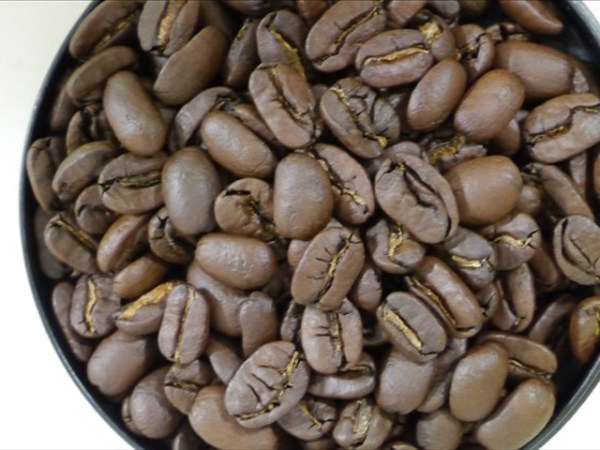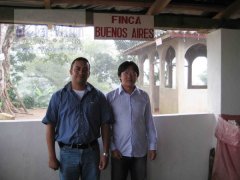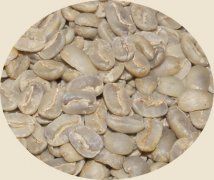Nicaragua BON champion El Naranjo Dipilto Orange Fruit Manor Pacamara Pacamara

For professional baristas, please follow the coffee workshop (Wechat official account cafe_style)
El Naranjo Dipilto. Orange Fruit Manor (Best of Nicaragua winning Manor | Award record: 2016. 1st place)
Variety: Pacamara
Landowner: Luis Emilio Valladarez Zelaya
Producing area: Nueva Segovia (New Sagovia) City: Dipilto
Grade: Strictly Hard Beans (S.H.B. EP) strict selection of high altitude extremely hard beans
AA PREMIUM SPECIALTY GREEN COFFEE
Altitude: 1800 m
Treatment procedure: non-contact water solarization method
(Sun-Dry Process without Water / Procesado Natural sin Agua)
Planting area: 50 ha
Cup test report
Dry aroma: sweet flowers, milk, sweet cherries, mango, whisky
Wet fragrance: sweet fruit, caramel, sweet fruit, nectar, cherry, chocolate
Sipping: sweet throat, sweet lemon, sweet mandarin fruit, special sweet fruit,
Whisky wine, sweet juice, pepper, kumquat, tropical fruit style, delicate sweet and sour taste of melon and fruit, interestingly, this is very different from the general strong sun bean flavor, silky and sweet taste.
Introduction of Pacamara varieties
Pacamara is a rare and precious variety developed in El Salvador; its flavor is full, rich and varied, apricot, vanilla plants, tropical fruits, chocolate, sweet spices and other diverse taste changes, few coffee varieties can have both bright acidity and strong sweetness; but like other large beans, the yield is relatively scarce.
The origin of the name Pacamara is derived from the varieties derived from the elephant bean Maragogype and Pacas Pacas, which are combined with the first four letters of Maragogype and Pacas respectively. The granule size is similar to that of the elephant bean, with a maximum of 22 mesh, making it the best coffee variety in Central and South America.
Postscript: Pacamara variety, which is rarely cultivated by farmers in Nicaragua, and its yield is rare.
The cup test of high quality Pacamara is extremely precious.
Sun exposure (Sun-Dry Process / Procesado Natural)
Arabs have treated coffee in the sun since more than a thousand years ago. The sun drying method is also called "natural drying method" because it uses sunlight to dry coffee fruit.
Water-free solarization-a special treatment step that is different from others
Extreme three-stage bean selection
With years of experience, manor farmers pick ripe red fruits by hand; after three times of strict selection, they select solid, mature and full red fruits, that is, they are given natural sunlight, and the whole process is "completely unwatered". The sweet fruit is not lost at all.
Sun drying
After the coffee fruit is harvested and dried by natural drying, the original bright red coffee fruit will become black Drycherry. The selected fruits will be exposed to the sun for 25 days (depending on the climate of the place of origin), and the water content of the beans will be controlled at about 12%. In order to make the fruits uniform in dryness and avoid excessive fermentation, it needs to be stirred from time to time in the process of sun exposure (too long or uneven, there will be over-fermented wine sour taste and rotten taste).
No matter how to deal with it, cover it with a tarp to block the night dew during the sun exposure.
Shelling
When exporting, the sun-dried fruit is then removed by a sheller to remove the hard peel, pulp and sheep skin.
Hand selection and grading
Hand-select defective beans, through our hand picking requirements of at least five times, strictly select S.H.B. Very hard grade coffee beans.
The advantages of solarization
Properly treated sun beans, beans are coated in the pulp naturally dry, absorb the essence of the fruit, so fruity, sweet, mellow thickness.
The disadvantages of solarization
Subject to weather conditions: this method is most afraid of the return of rain, the climate has a great impact on the quality of beans, and takes a long time
If it is not handled properly, it is easy to mix too many defective beans or impurities.
Sun-dried beans without touching water
Unique and distinctive, with no loss of sweetness and almost no defect in appearance, just like the quality that aroma boutique coffee has always promised.
Important Notice :
前街咖啡 FrontStreet Coffee has moved to new addredd:
FrontStreet Coffee Address: 315,Donghua East Road,GuangZhou
Tel:020 38364473
- Prev

Nicaragua COE champion Buenos Aires Buenos Aires Manor Mountain Spring static Water washing method
For the exchange of professional baristas, please follow the coffee workshop (Wechat official account cafe_style) Nicaragua COE champion Buenos Aires Buenos Aires Manor original mountain spring static water washing method in 2015 1st (crown army). C.o.E. Winning Manor: Buenos Aires. Buenos Aires Manor, a star variety of Maracaturra, has been soaked in mountain spring water.
- Next

Best of Nicaragua winning Manor Nicaragua Orange Fruit Manor Pacamara Pacamara products
For the exchange of professional baristas, please follow the coffee workshop (Wechat official account cafe_style) Pacamara variety introduction Pacamara is a rare and precious variety developed in El Salvador; its full flavor, rich and varied, apricot, vanilla plants, tropical fruits, chocolate, sweet spices and other diverse taste changes, few coffee varieties can have both bright acidity but strong sweetness
Related
- Detailed explanation of Jadeite planting Land in Panamanian Jadeite Manor introduction to the grading system of Jadeite competitive bidding, Red bid, Green bid and Rose Summer
- Story of Coffee planting in Brenka region of Costa Rica Stonehenge Manor anaerobic heavy honey treatment of flavor mouth
- What's on the barrel of Blue Mountain Coffee beans?
- Can American coffee also pull flowers? How to use hot American style to pull out a good-looking pattern?
- Can you make a cold extract with coffee beans? What is the right proportion for cold-extracted coffee formula?
- Indonesian PWN Gold Mandrine Coffee Origin Features Flavor How to Chong? Mandolin coffee is American.
- A brief introduction to the flavor characteristics of Brazilian yellow bourbon coffee beans
- What is the effect of different water quality on the flavor of cold-extracted coffee? What kind of water is best for brewing coffee?
- Why do you think of Rose Summer whenever you mention Panamanian coffee?
- Introduction to the characteristics of authentic blue mountain coffee bean producing areas? What is the CIB Coffee Authority in Jamaica?

